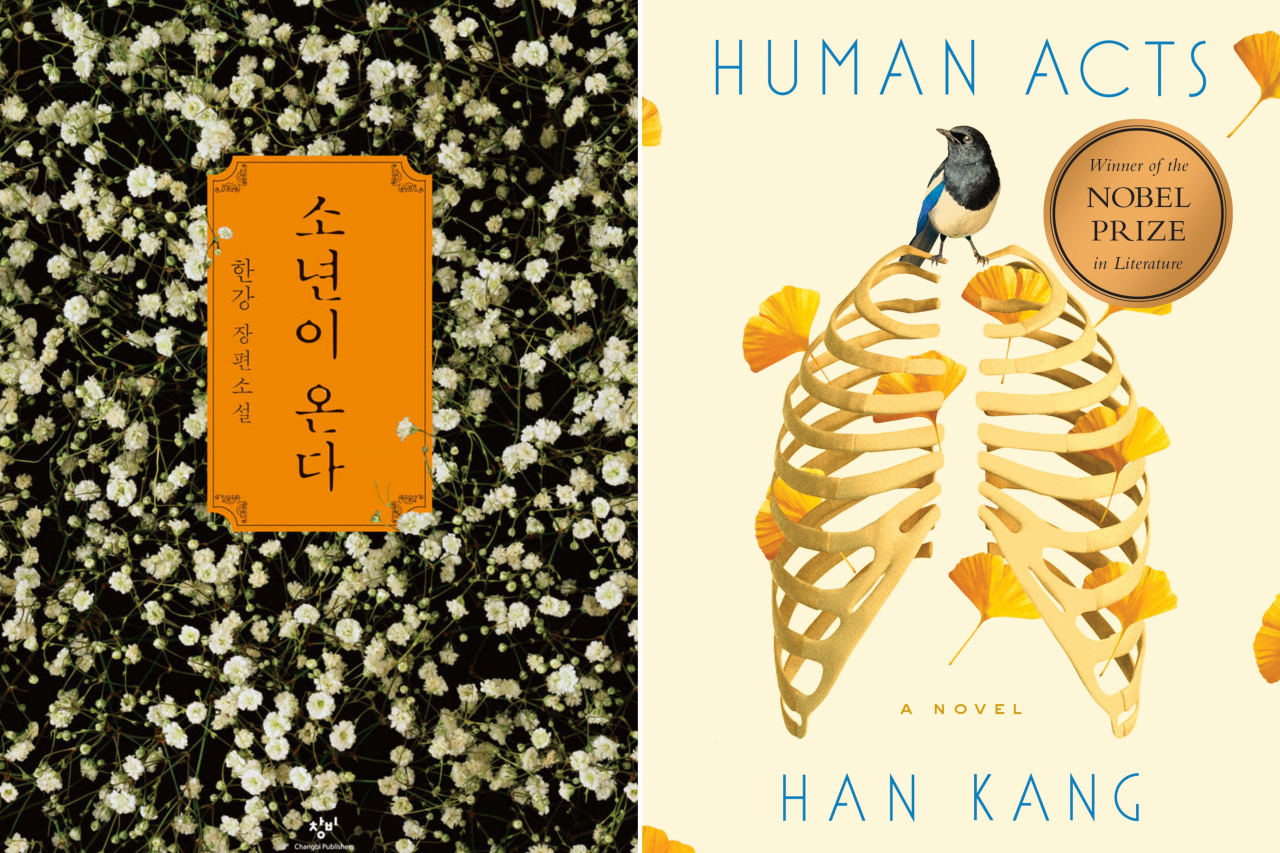
In the section “Media We Love,” The SeoulTech introduces various kinds of media to students, including books, art, movies, and more. This issue highlights Human Acts, a novel by Nobel Prize-winning author Han Kang, which explores South Korea’s modern history and has deeply resonated with readers’ hearts.
Human Acts: A Haunting Reflection of Memory, Violence, and Human Nature
“After you died I could not hold a funeral, and so my life became a funeral.” Human Acts is a Korean novel that examines both the overwhelmingly evil nature of mankind and the power to resist it. Set against the backdrop of the 1980 Gwangju uprising–also known as the May 18 Democratization Movement, a brutal military crackdown on pro-democracy demonstrators in South Korea—the novel unfolds through a series of intertwined narratives that trace the long shadow of violence across individual lives. Through shifting perspectives and haunting prose, Han explores themes of state brutality, collective memory, and the irrepressible dignity of the human spirit in the face of trauma. Human Acts is not only a meditation on grief and remembrance but also a searing indictment of the ways societies silence pain.
Themes and Literary Devices
In Human Acts, Han uses physical imagery to represent the violence of Gwangju. The image of bodies piled up together like a tower, unclaimed and unburied, illustrates how political oppression dehumanizes individuals, reducing them to mere physical remains. Dong-ho, the novel’s protagonist, spends his middle school years cleaning and collecting corpses, and the narration focuses on how death deforms the human body. Through this, readers can briefly inhabit the tragedy experienced by the real victims. The themes of collective suffering, shared humanity, and solidarity amidst pain are central to the novel. The story has multiple narrators, each telling stories from different points of view. Even characters who appear briefly are given depth and portrayed with reality, underscoring how trauma spreads across generations and communities. Han resists focusing on individual heroics, instead emphasizing collective pain and grief.
1980 Gwangju: Historical Context
Human Acts is based on the Gwangju Uprising. The movement was a pivotal event in South Korea, breaking out as a result of the public’s demand for democracy. It began in the wake of President Park Chung-hee’s assassination on October 26, 1979. Park was a dictator who had held power for 18 years and his death brought hope for democracy. However, in the aftermath of Park’s assassination, Chun Doo-hwan and a group of military leaders staged a coup on December 12, 1979, ultimately seizing control of the government. On May 17, 1980, the new military regime expanded martial law nationwide. In response, students in Gwangju began protesting against martial law and military dictatorship. The government reacted by deploying paratroopers to violently suppress the demonstrations. The soldiers’ use of bayonets and clubs enraged local citizens, and the protests grew to include thousands of people. On May 21, 1980 the army opened fire on protestors gathered in front of Jeonnam Provincial Office. Afterwards, civilian militias were formed forcing the troops to retreat from Gwangju to the outskirts. The civilian militias took control of Gwangju, but were eventually defeated by the army on May 27, 1980. In the end, the uprising had caused pain to ordinary citizens having official estimates of around 200 casualties. However, some sources dispute the official figures, claiming there were up to 2000 casualties. Dong-ho, the book’s most prominent character, is based on a real-life figure, Moon Jae-hak. Like Dong-ho, the late Moon helped recover the bodies of his friends and assisted the wounded at the Jeonnam Provincial Office and Sangmu Hall. On May 27, 1980, during the final military assault on the provincial office, Moon was killed by gunfire at the age of 17, alongside his friend, Ahn Jong-pil.
Why It’s Important
In an era marked by ongoing political violence, ideological polarization, and collective trauma across the globe, Human Acts remain vividly relevant to us. Han Kang’s novel reminds us that beneath every historical tragedy lies a multitude of individual griefs, often unspoken and unseen. By giving voice to those silenced and insisting on the humanity of violated communities, the book challenges readers to confront the uncomfortable, even painful truths that societies try to hide. In doing so, it becomes more than a literary work–it is an ethical act of remembrance, a call to witness, and a quiet but solid commitment to not look away.

Reporters
Somin Hong
hongsomin@seoultech.ac.kr
Jinpyo Hong
undohere@seoultech.ac.kr




 Comment 0
Comment 0 Posts containing profanity or personal attacks will be deleted
Posts containing profanity or personal attacks will be deleted